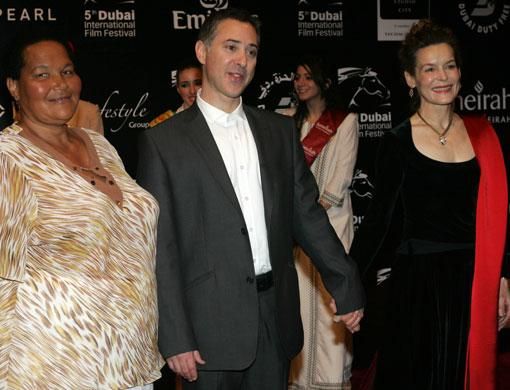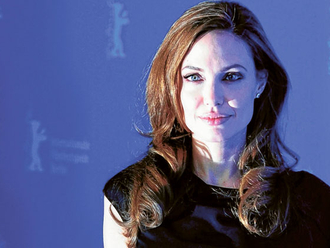Sandra Laing and Alice Krige were both born in South Africa in 1955 to white parents. Both women were classified white. But while Krige is white, Laing is black.
Nature had played a trick. Laing's parents Abraham and Sannie Laing were white. Their parents, grandparents and great grandparents were white — she isn't.
Krige, an actress who was born and raised in South Africa, says she was "honoured" to have been chosen to portray the difficult struggles of Sandra Laing in the true-to-life movie Skin.
"Sandra and I grew up in the same South Africa and yet we didn't in so many ways.
"She was subjected to a life of discrimination, oppression and loss. I was enormously privileged in ways I didn't really even appreciate. So this story is one which needs to be told."
By a biological quirk and genetic throwback, the pigment of an unknown black ancestor had lain dormant for generations and then manifested in Laing. But if there was ever a wrong place and a wrong time for something like that to happen, it was South Africa during apartheid.
"This story was a flare in the darkness for me," said Krige. "I read the script and instantly agreed. I had no reservations and knew it was the right thing to do."
Avoiding eye contact and lowering her voice, Laing is unwilling to open up very much. She says she's "much happier with black people," adding, "I am, I was, very shy with white people."
Her life is an emotional tale of a search for identity in a system built on race and prejudice, where house life, education, work and all social interaction was all demarcated by skin colour.
Eager to speak about a film that has clearly touched him very deeply, first time feature film director Anthony Fabian is desperate to help Laing express what she finds difficult.
"It's a mild way of putting things to say someone was expelled from school, mocked, abused, persecuted and told she was inferior. Sandra's life was turned upside down by a political system she knew nothing about."
This was never going to be a flash-in-the-pan project for Fabian and he spent more than seven years making the film to ensure that the story was told as accurately as possible.
"Sandra is a very shy lady, mainly due to what she has been through, so it has taken a long time to really understand her story, the actions of her family and South Africa at that time."
Having first heard Laing's story on a BBC Radio 4 segment, Fabian said he knew instantly it was the story he wanted to highlight by making his first feature.
"Within 20 minutes of the broadcast I was in tears. The show featured the discrimination faced by disabled people around the world and the journalist had come across Sandra and decided being black in SA during apartheid was actually worse than being disabled so she could feature.
"I tracked Sandra down and we met a few times and started on the long road to slowly unravelling the story."
As Laing's mother and father died more than 20 years ago, Fabian said one of the biggest challenges was telling the stories of the parents who disowned their daughter at the age of 17.
"Luckily there was so much documentation from newspapers, magazines and files over the past 40 years, we had a good idea of their true attitudes and ideas. That, added to Sandra's memories and recollections, allowed us to almost create a psychology for her father — even though he is no longer with us.
"One of the biggest challenges of making the movie was staying true. We had to be rigorous, but without inventing anything."
Proceeds from the movie, along with a book about Laing's story, which has been told repeatedly in South Africa over the past 40 years, have made it possible for Laing and her husband, Johannes Motloung, to buy their own home.
"The South African government has a copy of the film and they have since made all members of parliament watch it. They have also said they would like every school child to watch the movie over the next few years, and are considering making this compulsory," Fabian said.
Krige concluded, saying: "It is a fantastic story of a family that is completely destroyed by the political system. However, I believe you can draw some happiness from the fact the essential bond between mother and daughter survives.
"It is wonderful to see — it is a kind of love that simply cannot be broken, no matter what it has to endure."
More than skin deep
More than skin deep












